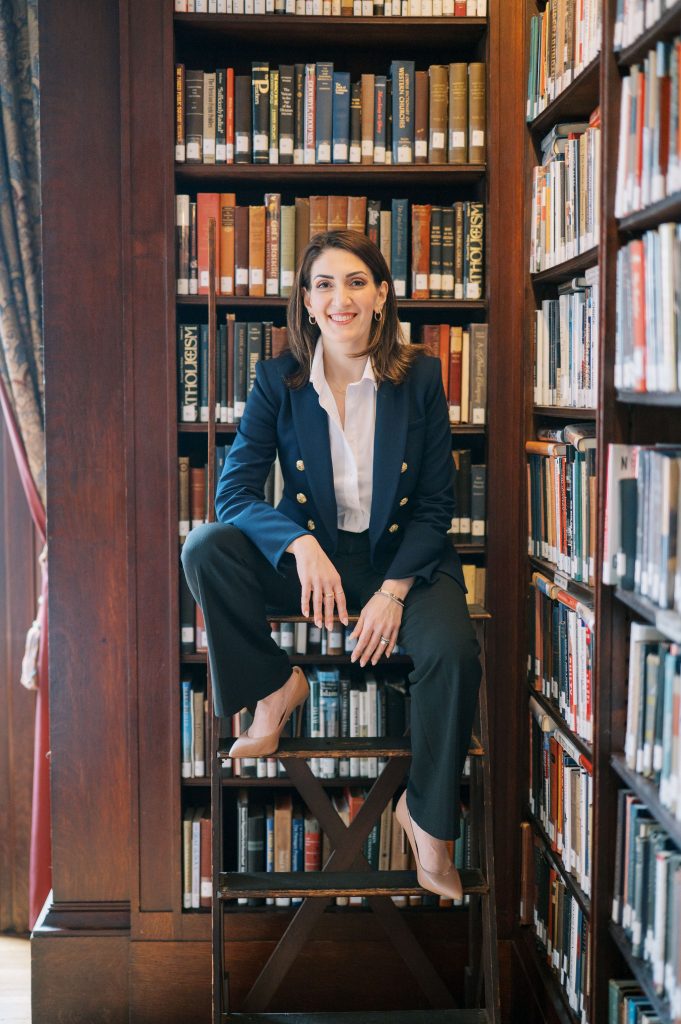
Name/Pronouns: Hi, I’m Marian Braccia (pronounced brah-cha—like “gotcha”). My pronouns are she/her/hers. I use my Temple email address for pretty much everything: tud23980@temple.edu
Background/Research Interests: I bet I’m the oldest person in this class and I swear I’m really, really ok with that <<<slathers on undereye cold cream>>>—I graduated from law school almost 20 years ago, and I spent nearly 13 years as a prosecutor in Philadelphia specializing in cases of domestic and sexual violence. (Fun fact: I also ran the IT department for the DA’s Office, which felt very much like being tech support for 300 lawyers who all thought Ctrl+Alt+Del was black magic.)
This is my eighth full academic year as a practice professor of law at Temple University Beasley School of Law, where I teach evidence, trial advocacy, and serve as the director of the LL.M. in Trial Advocacy program. About six years ago, I started researching gender bias in the courtroom for a presentation called Hysterical: Identifying and Eliminating Gendered Communication in the Practice of Law which I’ve given about 50 times all over the country. It’s become my passion project—equal parts love letter to women in the legal profession and tirade against the catch-22 we face: be too emotional, and you’re unprofessional; be dispassionate, and you’re a heartless bitch. The legal profession is slowly evolving, but I’m here to make sure we give it a good shove in the right direction.
Why this class?
Oral history feels like a natural extension of my scholarly and professional interests. Much of my work has involved the collection, preservation, and interpretation of testimony. In the courtroom, stories are structured and constrained by rules of evidence; in oral history, stories are expansive, layered, and contextualized within lived experience. I am especially interested in the ways oral history can surface voices that are often marginalized or silenced in official records—precisely the kinds of voices I sought to amplify as a prosecutor and now highlight in my research.
This course offers a chance to strengthen both the theoretical and methodological dimensions of my work. On the theoretical side, I am eager to study how oral histories complicate collective memory, power, and identity. On the practical side, I want to build skills in interviewing, transcription, and archiving—techniques that will allow me to capture narratives of women and gender-diverse lawyers as part of my eventual dissertation research. My goal is to document not only how these advocates navigate bias in the courtroom, but also how their personal experiences shape their advocacy styles, professional choices, and resilience.
Ultimately, I hope to bridge my legal expertise with the tools of communication scholarship. Oral history offers a methodology for preserving the lived realities of people whose voices are often minimized in institutional contexts. By learning to conduct and analyze oral histories with rigor, I can deepen my research, enrich my teaching, and contribute to a more inclusive understanding of how law is practiced and experienced.
Anything Else?
Where to begin? I’m married and have four kids (ages 13, 11, 9, and 4—a pandemic baby really keeps life spicy). I’m an only child, so I’m balancing parenting, a full-time job, and Ph.D. coursework with worrying about my aging parents, too. It’s a lot, but I thrive in chaos. Sleep? Overrated.
If there’s a day I seem scatterbrained, it’s probably because I’ve been up since 4:30 a.m. reviewing coursework while packing lunches, refereeing sibling squabbles, and heading into Philly traffic. But I’m here, caffeinated, and eager to learn.
Hi, this is a comment.
To get started with moderating, editing, and deleting comments, please visit the Comments screen in the dashboard.
Commenter avatars come from Gravatar.